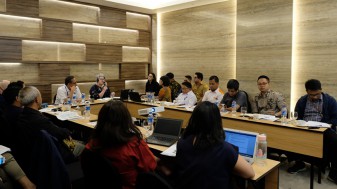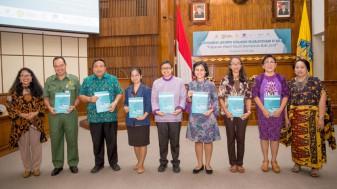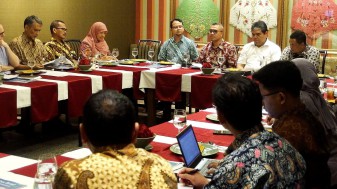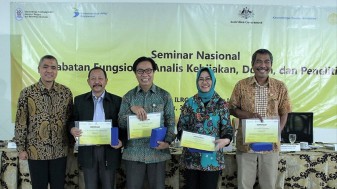Edited by Vira Riyandari
At the beginning of 2017, the Local Autonomy Implementation Monitoring Committee (KPPOD), in collaboration with KSI, disseminated results from a 2016 study on Local Economic Governance (LEG) in 32 provincial capitals. The study described the assessment of business actors on policy, institutional and investment service aspects at the local level. The index composition (rank) and issue typology provide a general overview of the situation in various local areas.
The index ranked Pontianak first among 32 surveyed regions. Medan had the lowest ranking due to poor government performance in almost all sub-indexes, except the variables of quality and conflict resolution. Emerging cities in the eastern part of Indonesia and medium-scale economies ranked in the top 10. The study revealed that LEG is starting to be used as an instrument to build competitiveness and catch up with large-scale cities located in the western hemisphere of Indonesia.
Other findings suggested some businesses suffered from a number of economic imbalances, for example it is difficult for small and micro business groups to access facilities and infrastructure, there are limited business incentives and affirmative programs offered by local government, and business license ownership is dominated by a certain business group scale. The study revealed that the program resulting from the state’s affirmative policy for vulnerable or small businesses is misdirected, as in practice the benefits are enjoyed more by medium- and large-scale businesses, rendering the Government’s policy irrelevant.
As a follow up, KPPOD organised a series of multi-party dialogue forums to formulate a number of recommendations from the LEG study findings. The forums engaged the Government (from the service provider and policy maker aspect), business owners (from the service user and demand aspect), academics, civil society organisations and the media in several cities, including Pontianak, Padang and Kupang. The results of these discussions will be followed up by a national level discussion through the Indonesian Development Forum, a multi-stakeholder forum discussing and contesting various initiatives and innovations to address gaps in national development.
local areas.





